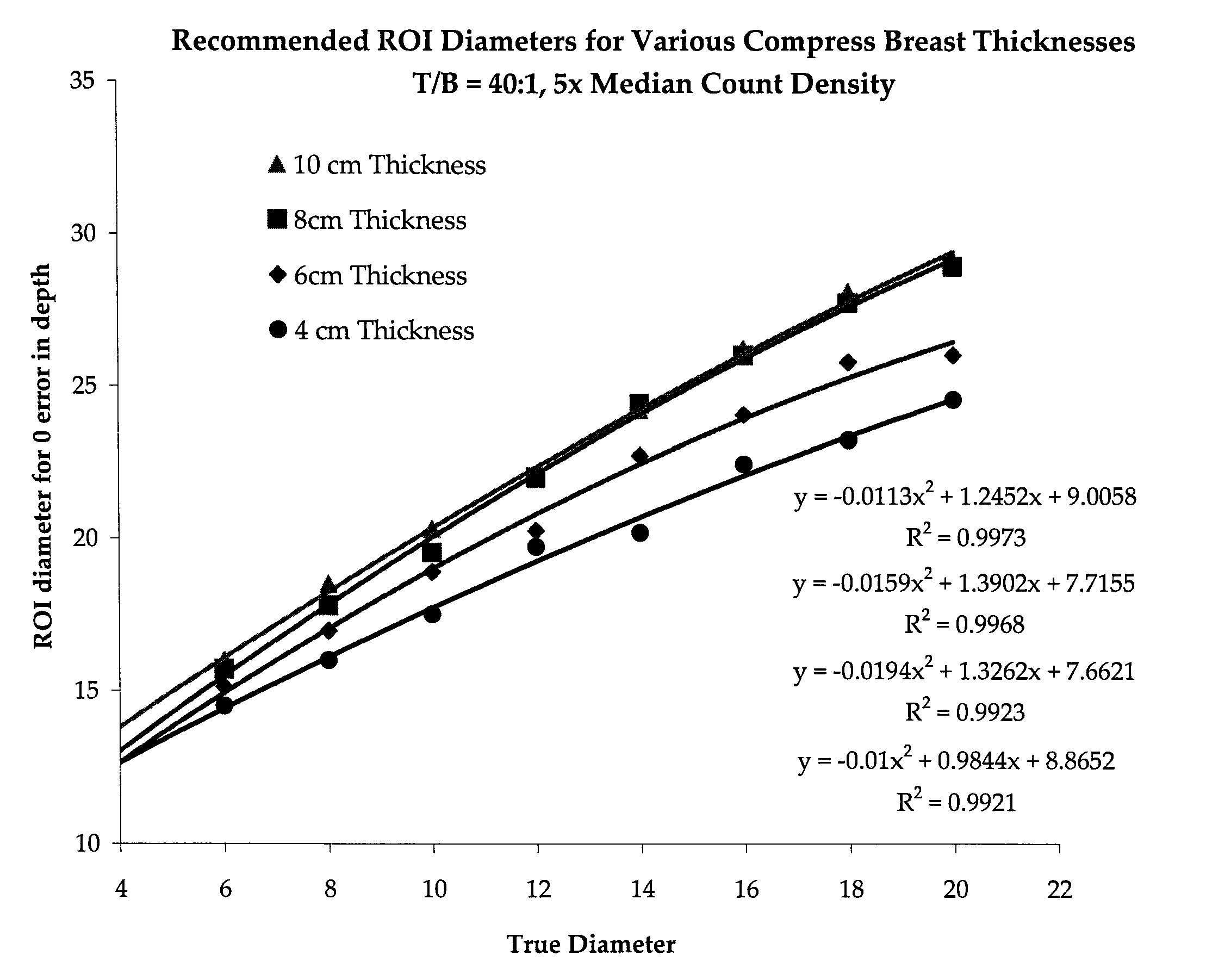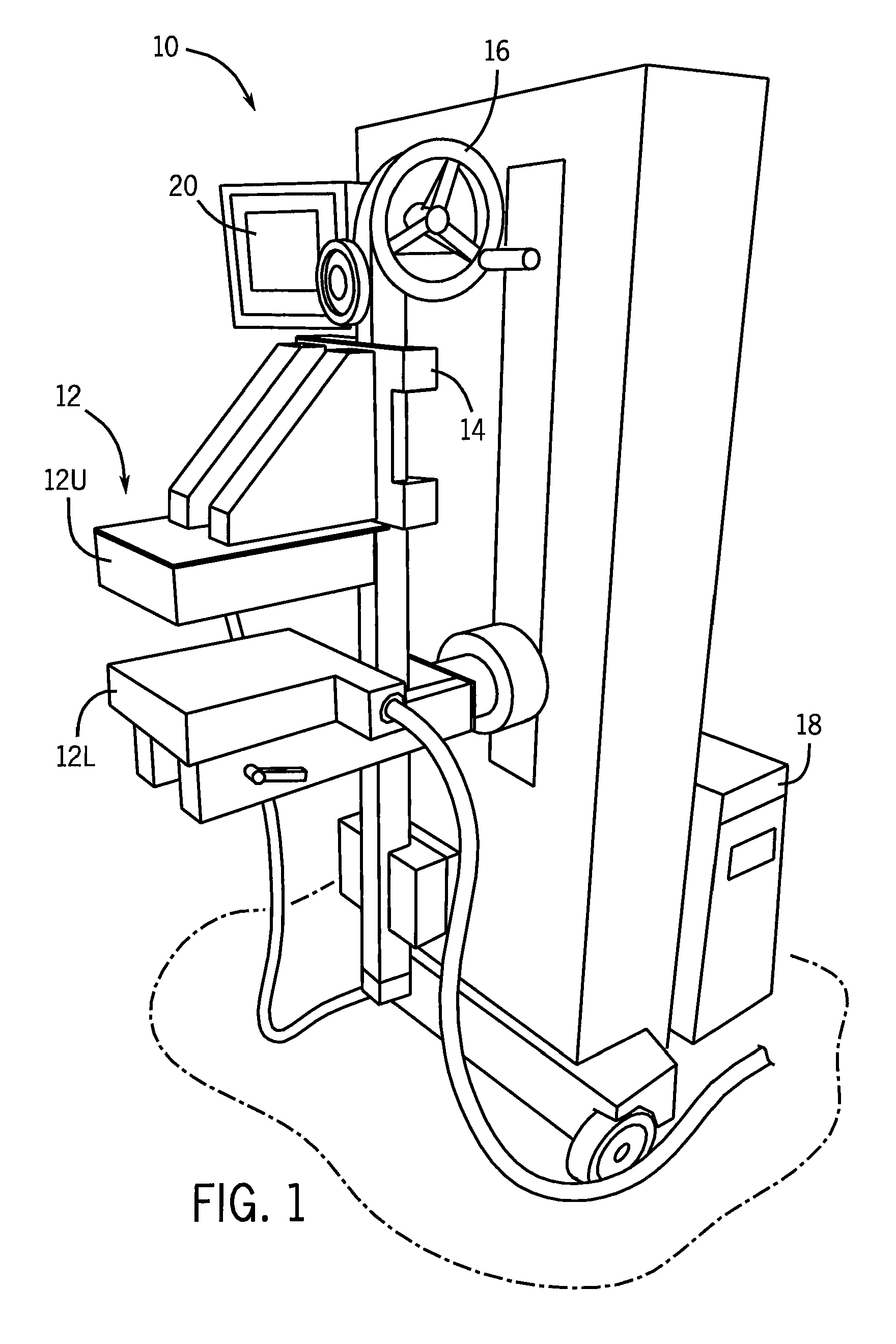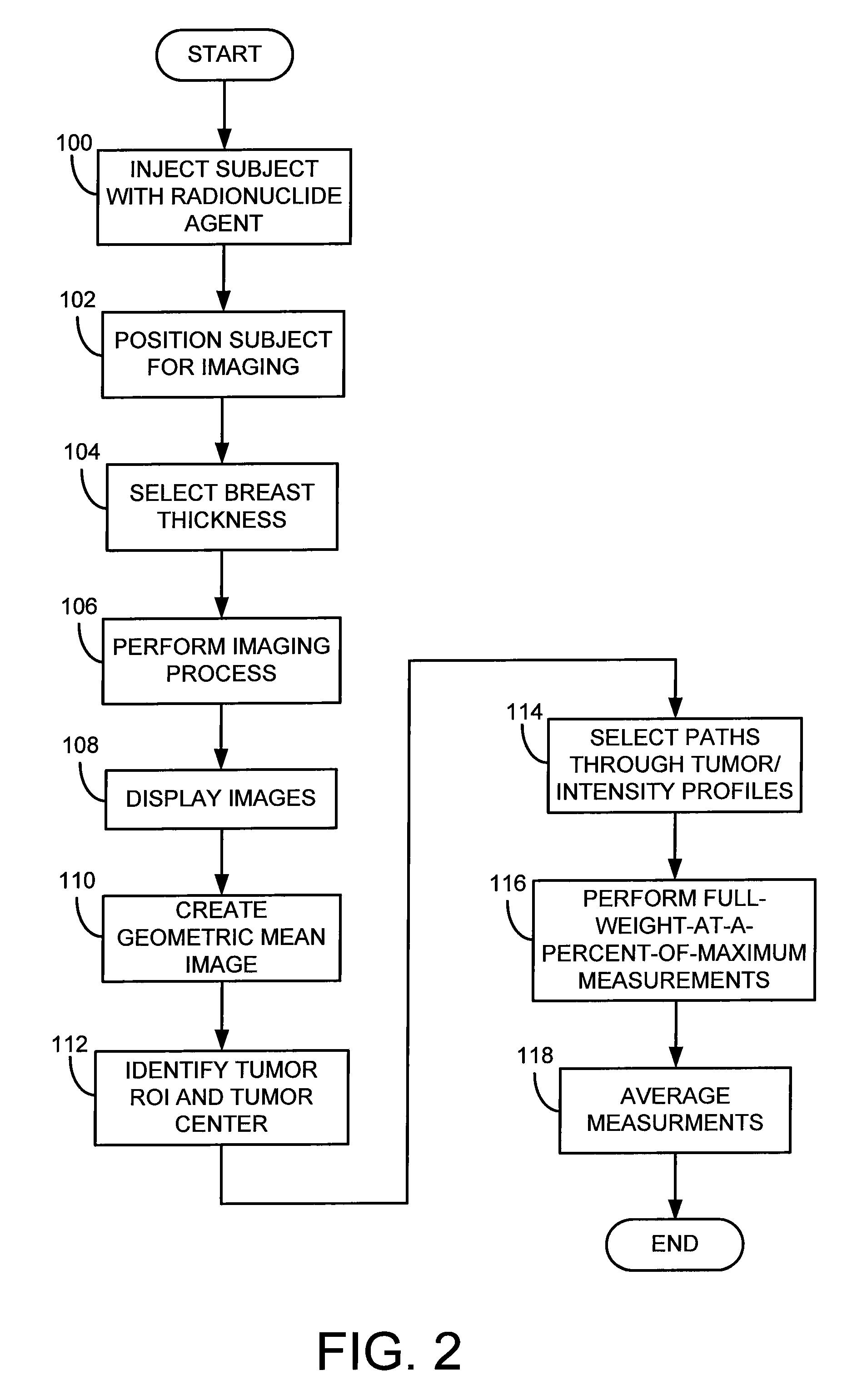System and method for quantitative molecular breast imaging
a molecular breast and molecular imaging technology, applied in the field of molecular breast imaging systems and methods, can solve the problems of reducing the usefulness of this procedure, not being widely used as a screening technique, and the cost of mri is currently approximately 20 times more, so as to achieve accurate size determination
- Summary
- Abstract
- Description
- Claims
- Application Information
AI Technical Summary
Benefits of technology
Problems solved by technology
Method used
Image
Examples
Embodiment Construction
[0018]Referring to FIG. 1, a molecular breast imaging (MBI) system 10 includes two opposing cadmium zinc telluride (CZT) detectors (detector heads) 12. In particular, the detector heads 12 include an upper detector head 12U and a lower detector head 12L. Each detector head 12U, 12L is, for example, 20 cm by 16 cm in size and mounted on a modified upright type mammographic gantry 14. In accordance with one embodiment, the detector heads 12 are LumaGEM 3200S high-performance, solid-state cameras from Gamma Medica having a pixel size of 1.6 mm. LumaGEM is a trademark of Gamma Medica, Inc. Corporation of California.
[0019]The relative position of the detector heads 12 can be adjusted using a user control 16. Specifically, the detector head assemblies 12 are, preferably, designed to serve as a compression mechanism. Accordingly, this system configuration reduces the maximum distance between any lesion in the breast and either detector head 12 to one-half of the total breast thickness, pot...
PUM
 Login to View More
Login to View More Abstract
Description
Claims
Application Information
 Login to View More
Login to View More - R&D
- Intellectual Property
- Life Sciences
- Materials
- Tech Scout
- Unparalleled Data Quality
- Higher Quality Content
- 60% Fewer Hallucinations
Browse by: Latest US Patents, China's latest patents, Technical Efficacy Thesaurus, Application Domain, Technology Topic, Popular Technical Reports.
© 2025 PatSnap. All rights reserved.Legal|Privacy policy|Modern Slavery Act Transparency Statement|Sitemap|About US| Contact US: help@patsnap.com



